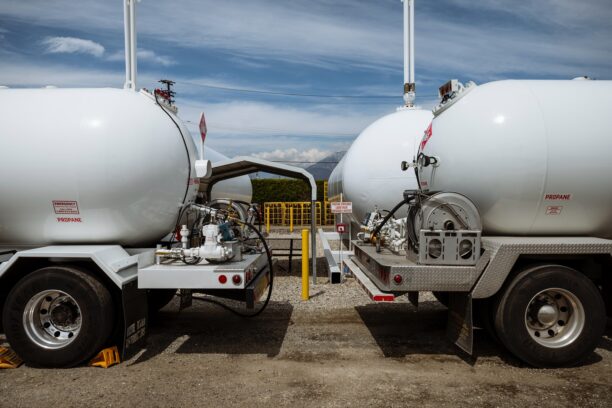Minimizing Downtime in Your Propane Delivery Fleet
In the propane delivery industry, minimizing downtime is critical to maintaining efficient operations and ensuring timely deliveries. Downtime not only disrupts schedules but also affects customer satisfaction and increases operational costs. Here are some practical strategies to help propane businesses reduce downtime in their delivery fleets and keep operations running smoothly. Regular Maintenance Schedules Regular… Continue reading Minimizing Downtime in Your Propane Delivery Fleet
In the propane delivery industry, minimizing downtime is critical to maintaining efficient operations and ensuring timely deliveries. Downtime not only disrupts schedules but also affects customer satisfaction and increases operational costs. Here are some practical strategies to help propane businesses reduce downtime in their delivery fleets and keep operations running smoothly.
Regular Maintenance Schedules
Regular maintenance is the cornerstone of a reliable delivery fleet. Implementing a routine maintenance schedule can prevent unexpected breakdowns and extend the lifespan of your vehicles. Key aspects include:
Preventive Maintenance: Regularly check and replace essential components such as oil, filters, brakes, and tires. This proactive approach helps identify potential issues before they become major problems.
Scheduled Inspections: Conduct thorough inspections at regular intervals to ensure all vehicle parts are in good working condition. Address any wear and tear promptly to avoid future downtime.
Utilizing Fleet Management Technology
Investing in fleet management technology can significantly enhance the efficiency and reliability of your propane delivery fleet. These tools provide real-time insights into vehicle performance and help streamline maintenance processes. Benefits include:
GPS Tracking: Real-time GPS tracking allows you to monitor vehicle locations, optimize routes, and reduce unnecessary mileage, thereby decreasing wear and tear on your fleet.
Telematics Systems: Telematics systems provide detailed data on vehicle performance, fuel usage, and driver behavior. This information can be used to identify areas for improvement and implement training programs for drivers.
Automated Alerts: Set up automated alerts for maintenance reminders, vehicle diagnostics, and performance issues. This ensures timely attention to potential problems and reduces the likelihood of breakdowns.
Driver Training and Responsibility
Well-trained drivers play a crucial role in minimizing fleet downtime. By promoting responsible driving habits and regular vehicle checks, you can enhance the reliability of your fleet. Focus areas include:
Defensive Driving: Train drivers on defensive driving techniques to reduce the risk of accidents and mechanical stress on vehicles.
Daily Inspections: Encourage drivers to perform daily vehicle inspections before and after their shifts. Identifying and reporting minor issues early can prevent them from becoming major problems.
Reporting Protocols: Establish clear protocols for reporting vehicle issues. Ensure that drivers feel comfortable reporting problems promptly, knowing that quick action will be taken.
Efficient Spare Parts Management
Having a robust spare parts inventory and management system can significantly reduce downtime. Ensure that commonly needed parts are readily available and easily accessible. Key practices include:
Inventory Management: Keep track of spare parts inventory and reorder supplies before they run out. Use inventory management software to streamline this process.
Strategic Partnerships: Develop relationships with reliable parts suppliers to ensure quick delivery of essential components. This minimizes the wait time for parts and reduces downtime.
Emergency Preparedness
Despite one’s best efforts, unexpected breakdowns can still occur. Being prepared for such challenges can help minimize their impact on your operations. Emergency essentials to equip your team with include:
Emergency Kits: Equip all vehicles with emergency repair kits, including tools, spare tires, and essential fluids. This allows drivers to handle minor repairs on the road.
Roadside Assistance: Partner with a reliable roadside assistance service to provide quick support for major breakdowns. Ensure that drivers have the necessary contact information and procedures for requesting help.
Keeping your delivery fleet running smoothly is crucial for maintaining the reputation and efficiency of your propane business. By taking these proactive steps to minimize downtime, you can ensure that your operations remain on track and your customers receive their deliveries on time. This will serve to both increase customer satisfaction and reduce operational costs, thereby contributing to long term stability for your propane business.

